What is cloud computing?
The cloud computing service provides users, whether they are private or business, with the ability to consume cloud services, store information and files, and access their digital content and materials – from any location, via the Internet. Cloud servers are located in data centers all over the world. As the name suggests, a cloud network provides access to information anywhere, anytime, without any requirement for the user to be physically present at the location where the information is stored.
In this model, the customer does not own or manage the computing resources and systems but rather rents them from the cloud computing providers according to the actual metered consumption of services. It enables the organization to avoid the expense of expensive equipment, hardware, and software, as well as the costs associated with storing, managing, maintaining, renewing, and updating these systems. The advantage of cloud computing is that it enables the customers to gain control over the computing resources, rent more computer power at peak times, and reduce consumption and spending at other times.
Business cloud services
Using cloud computing, businesses will reduce some IT costs: for example, they will no longer be responsible for updating and maintaining their own servers, as the cloud vendor will do so for them. This has a significant impact on small businesses that might not have been able to afford their own internal infrastructure and can now outsource their infrastructure needs in an affordable manner through the cloud. A cloud-based solution can also make it easier for companies to operate internationally, as employees and customers are able to access files and applications from any location.
Cloud deployments can be classified into different types:
• Private cloud: A private cloud consists of servers, data centers, or distributed networks that are exclusively dedicated to one organization.
• Public cloud: Public clouds are run by external vendors and include servers in one or more data centers. Public clouds are shared by multiple organizations as opposed to private clouds.
• Hybrid cloud: A hybrid cloud deployment combines public and private clouds, as well as on-premises legacy servers.
• Multi-cloud: A multi-cloud deployment involves the use of multiple public clouds.
What companies provide cloud computing and storage services?
Amazon S3, Alibaba Cloud, BIM 360, Box, Egnyte, Dropbox, Procore, Google Drive, SharePoint Online, OpenText, OneDrive, Microsoft Azure Blob Storage, and more.
What is on-premise?
On-premise data centers within the client infrastructure are maintained by the companies themselves. On-premise servers and their configuration, security, and management can be managed more easily by an IT staff due to their physical access to the data. Your internal teams will be able to access data and critical information, and any external party will not be able to access it remotely. There is one important difference between on-premise software and cloud computing. In an on-premise environment, everything is hosted in-house by the company, while in a cloud environment, third-party providers handle everything.
What companies provide on-premise services?
Microsoft SharePoint 2001,2003,2007,2010,2013,2016,2019, Documentum, File system, Atlassian Confluence, IBM iNotes (Lotus Notes), Xerox Docushare, LiveLink, OpenText Content Server, IBM File Net, Oracle WCI, eDocs (Hummingbird DM) Hitachi Content Platform, Opentext eRoom, and more.
Migrating from on-premise to the cloud
Migrating from on-premise to the cloud has many advantages. Moving from a legacy on-premise enterprise data warehouse to a cloud-based solution is primarily motivated by cost efficiency. An on-premise computing infrastructure requires physical security, electricity, space, operating systems, construction, air conditioning, hardware procurement, and networking. As an alternative, you may be able to eliminate these costs to a cloud service provider, who will take care of all that for you, and thus you will be able to save considerable amounts of money over time.
Tzunami’s On Premise ECM System to Cloud Migration closes the gap by offering a customized migration solution that enables businesses and organizations to migrate all their data from various ECM systems to the cloud system of their choice. Tzunami was designed to migrate using advanced features catering to large-scale migrations and helps administrators control both the speed and execution of the migration effort. Features were designed as a part of planned development or due to increasing input from clients and system integrators.
The benefits of Tzunami migration are numerous
• Full metadata coverage – Tzunami Deployer supports the extraction and migration of default and custom metadata.
• Multiple Integrations – Tzunami support dozens of on-premise and cloud environments for your upcoming migration.
• With over 10 years of experience in the field of data and content transfer, Tzunami Inc. is a leading provider and pioneer in this field.
• Customization – Tzunami’s solutions are easily customizable to support any additional requirement and/or custom integration for your upcoming migration strategy.
How to transfer data from ECM on-premise systems to the cloud?
• Export data from multiple ECM systems and SharePoint environment 2001-2019
• Tzunami deployer exports data
• Exported data is uploaded to desired cloud storage
• Custom development according to client request
• New ECM systems can be developed for extraction and/or destination
• Enhanced migration scenarios according to client request












